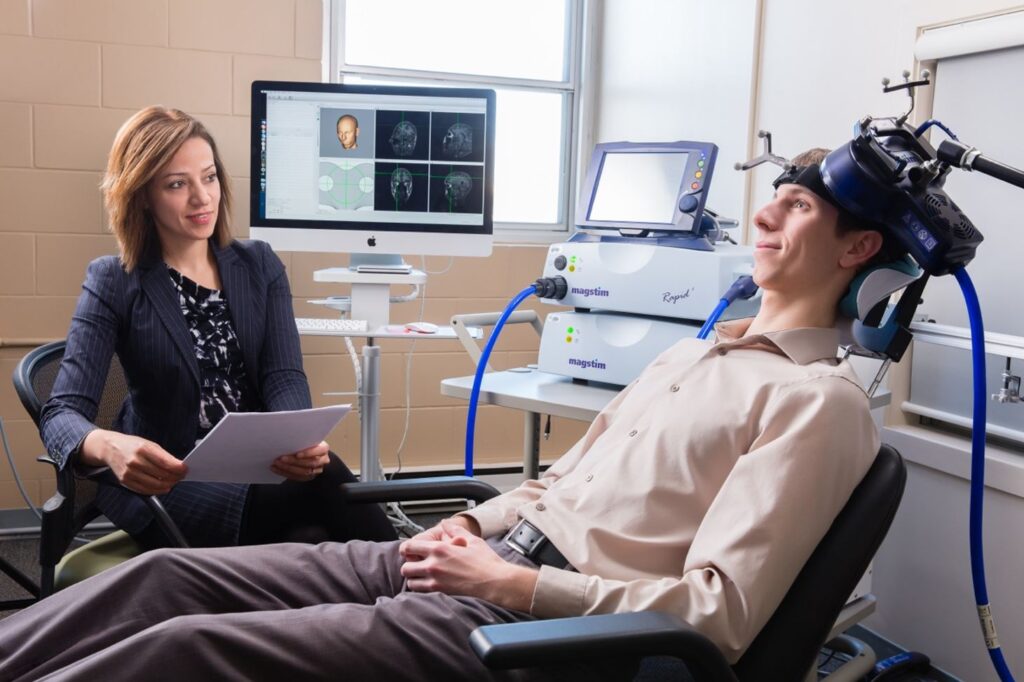Do you feel defeated by chronic, never ending, medication resistant depression?
Has your depression taken a toll on your daily life and relationships, changing the way you feel, think, or behave?
If the medications with psychotherapy doesn’t seem to be working, the way it used to, Transcranial Magnetic Stimulation (TMS) may be something to explore as an option.
What is TMS? Does it Actually Work?
TMS therapy is a non-invasive method of stimulating the brain cells using electromagnetic induction in order to improve the flow of communication between different parts of the brain. The procedure involves placing an insulated coil over the scalp of the patient and treating the frontal cortex (the part of brain responsible for mood regulation) with brief magnetic pulses. The generated pulses are about the same type and strength as those generated by MRI machines, so the procedure is completely painless.
For individuals suffering with depression, Repetitive Transcranial Magnetic Stimulation (rTMS) has proved to be beneficial and can result in lasting changes in brain activity. Repeated stimulations tend to decrease the symptoms of depression for around 6-12 months, after the patient has received about 10 to 12 sessions of rTMS.
The treatment actually helps treat depression, and as much as 78% of patients respond well to TMS therapy. In most cases, reliance on antidepressants, or any other medications, is eliminated completely and the sufferer goes from being down and sullen to flourishing in just 10-12 sessions.
Is TMS Safe?
The rTMS treatment is FDA approved in the United States and considered to be safe treatment. Apart from depression, rTMS is also approved for the treatment of other common disorders, including schizophrenia, OCD, PTSD, Alzheimer’s disease, Parkinson’s disease, nicotine addiction, and chronic pain.
So, if the waves of depression are taking you under water, rTMS may be a treatment option to consider, rather than continued anchoring of medications. It’s effective, painless, provides long-term results, and may be covered by your insurance, too.
